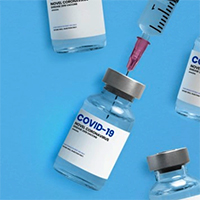Gender differences in vaccine therapy: where are we in COVID-19 pandemic?

All claims expressed in this article are solely those of the authors and do not necessarily represent those of their affiliated organizations, or those of the publisher, the editors and the reviewers. Any product that may be evaluated in this article or claim that may be made by its manufacturer is not guaranteed or endorsed by the publisher.
Accepted: 24 March 2021
Authors
Vaccination is one of the greatest achievements of public health. Vaccination programs have contributed to the decline in mortality and morbidity of various infectious diseases. This review aims to investigate the impact of sex/gender on the vaccine acceptance, responses, and outcomes. The studies were identified by using PubMed, until 30th June 2020. The search was performed by using the following keywords: SARS-CoV-2, COVID-19, gender, sex, vaccine, adverse reaction. Clinical trials, retrospective and prospective studies were included. Studies written in languages other than English were excluded. Studies were included if gender differences in response to vaccination trials were reported. All selected studies were qualitatively analyzed. Innate recognition and response to viruses, as well as, adaptive immune responses during viral infections, differ between females and males. Unfortunately, a majority of vaccine trials have focused on healthy people, with ages between 18 to 65 years, excluding the elderly, pregnant women, post-menopausal female and children. In conclusion, it is apparent that the design of vaccines and vaccine strategies should be sex-specific, to reduce adverse reactions in females and increase immunogenicity in males. It should be mandatory to examine sex-related variables in pre-clinical and clinical vaccine trials, such as their crucial role for successful prevention of pandemic COVID-19.
How to Cite

This work is licensed under a Creative Commons Attribution-NonCommercial 4.0 International License.






